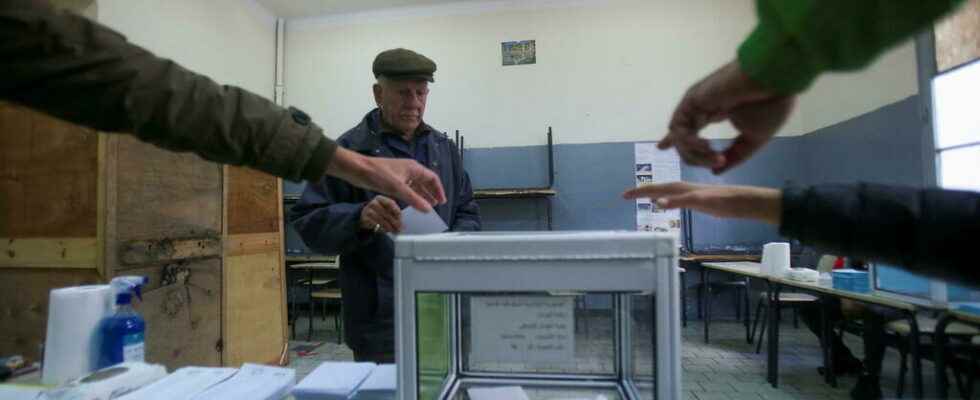Nearly 24 million voters are being called to the polls today for local elections. The offices have been open since 8 a.m. this morning and must close their doors at 7 p.m. This third ballot, since the arrival of Abdelmadjid Tebboune to the presidency, is the last stage of the electoral process initiated by the authorities to, they say, turn the page of 20 years in power of Abdelaziz Bouteflika. The former president, driven out by the Hirak in 2019, died last September. The last two ballots (referendum on the Constitution and legislative) were marked by a record abstention.
More than 23 million Algerians are called to the polls this Saturday, November 27 to choose their local elected officials. This designation of local assemblies is supposed to definitively turn the page on the long reign of Abdelaziz Bouteflika with participation as the main stake.
The national electoral authority announced a participation rate of 4% at the national level at 10 a.m., two hours after the opening of the polling stations, which must close at 7 p.m., for this poll in which Algerian voters must choose their municipal and departmental elected officials.
Friday evening, President Abdelmadjid Tebboune called on his compatriots to participate “with force in these elections” and, this morning, by slipping his ballot into the ballot box, in a school in Algiers, he predicted a higher turnout for this ballot .
The last two ballots – referendum on the constitution a year ago, and legislative in June – recorded a participation of around 23%, a historically low rate. Note that for these locals, the three weeks of the campaign were gloomy: only a few posters in the capital, for example, a few rallies in closed rooms and not very active candidates.
Algerians must choose their elected representatives for the 1,500 municipalities and 58 prefectures in the country. The traditional FLN party is the one with the most lists. The oldest opposition party, the FFS (Front des forces socialistes) has chosen to participate, unlike the legislative elections, especially in Kabylia, one of its strongholds.
On the other hand, the RCD boycotts, even if some of its leaders present themselves on lists of independents.
According to observers, the expected participation in Kabylia should raise the general rate. This traditionally rebellious region had largely boycotted the last polls.
